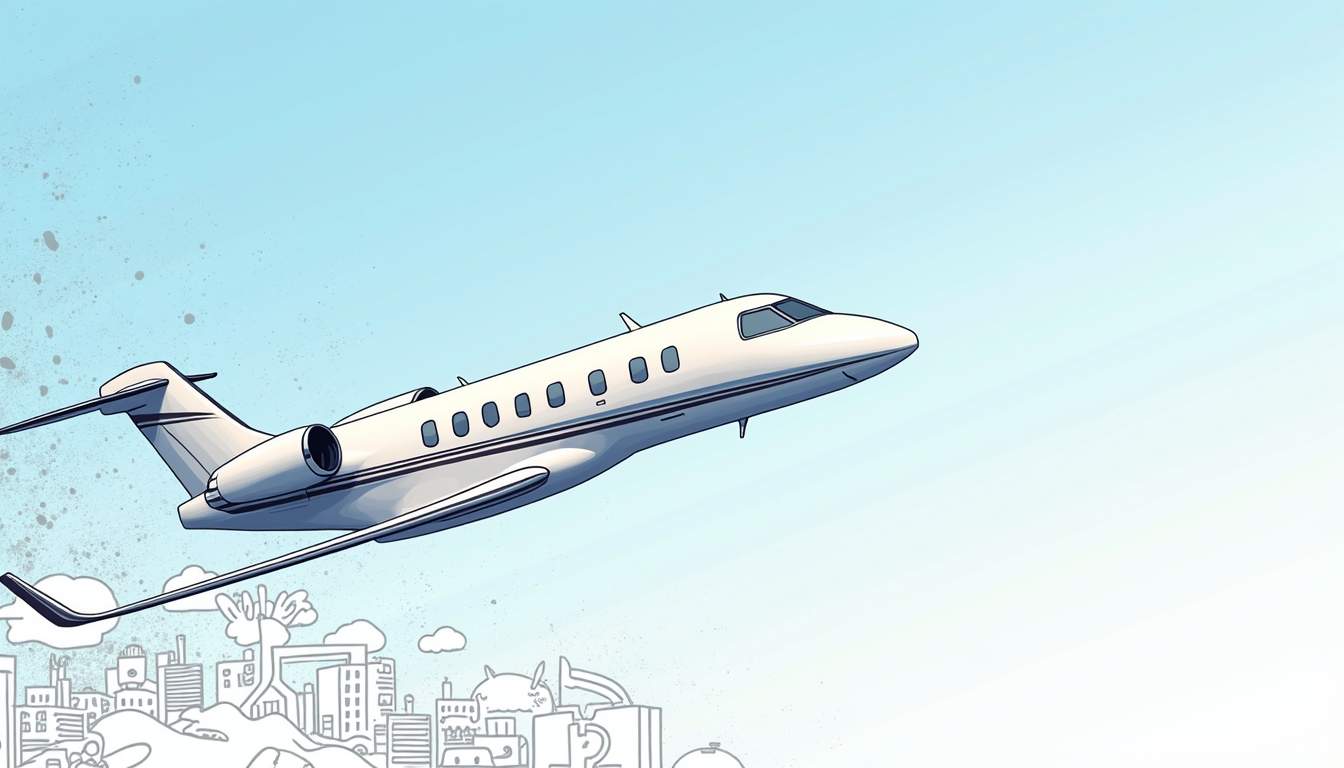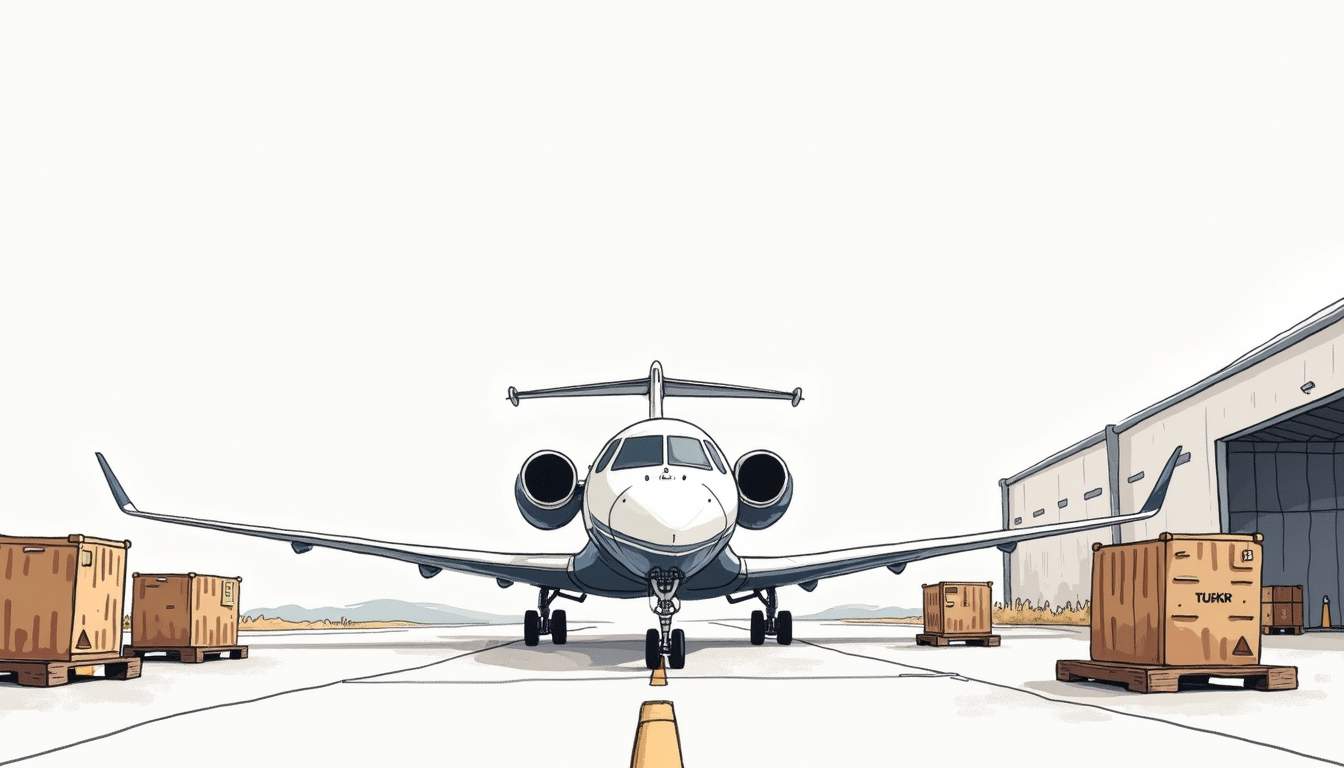Air charter services have become an essential component of modern logistics and transportation. This guide aims to provide a comprehensive overview of air charter options, industry trends, key sectors utilizing air cargo charters, and a glossary of relevant terms. Understanding these aspects can help businesses and individuals make informed decisions when considering air charter services.
Air Charter Aircraft
Overview of Air Charter Options
Air charter services offer a flexible and efficient means of transporting goods and passengers. Unlike commercial airlines, charter flights can be customized to meet specific needs, including flight schedules, routes, and aircraft types. This flexibility is particularly beneficial for businesses that require quick and reliable transportation solutions.
Charter options range from small turboprop planes to large cargo jets, allowing for a wide variety of loads and distances. Whether it’s a last-minute shipment or a planned delivery, air charter services can accommodate diverse requirements, making them a popular choice across multiple industries.
PILATUS PC-12 Specifications
The PILATUS PC-12 is a versatile single-engine turboprop aircraft widely used in the charter industry. Known for its reliability and performance, the PC-12 can carry up to 1,800 pounds of cargo or accommodate up to 9 passengers. Its range of approximately 1,800 nautical miles allows it to reach remote locations efficiently.
Equipped with advanced avionics and a spacious cabin, the PC-12 is ideal for both passenger and cargo transport. Its short takeoff and landing capabilities enable it to operate from smaller airports, which is a significant advantage for urgent deliveries in less accessible regions.
CESSNA 406 CARAVAN II Features
The CESSNA 406 CARAVAN II is another popular choice for air charter services, particularly in the cargo sector. This aircraft can carry a payload of up to 3,500 pounds and is known for its rugged design and reliability. With a maximum range of about 1,000 nautical miles, it is well-suited for regional flights.
Its spacious cabin can be configured for various cargo types, making it a versatile option for businesses needing to transport goods. The CESSNA 406 is also equipped with advanced safety features, ensuring secure operations in various weather conditions.
DASSAULT FALCON 20 Advantages
The DASSAULT FALCON 20 is a twin-engine business jet that offers luxurious travel options along with cargo capabilities. With a range of approximately 2,000 nautical miles, it can connect major cities efficiently while providing comfort for passengers.
This aircraft can carry up to 6,000 pounds of cargo, making it suitable for high-value shipments. The FALCON 20’s advanced navigation systems and comfortable cabin make it a preferred choice for corporate travel and urgent cargo deliveries alike.
McDonnell Douglas DC-9 15F Overview
The McDonnell Douglas DC-9 15F is a freighter version of the well-known DC-9 series, designed specifically for cargo operations. It boasts a large cargo capacity of up to 30,000 pounds and is capable of carrying oversized freight, making it ideal for heavy shipments.
With a range of about 1,500 nautical miles, the DC-9 15F can service both domestic and international routes. Its robust design and proven performance make it a reliable option for businesses looking to transport large volumes of goods efficiently.
BOEING 747-400F Capabilities
The BOEING 747-400F is one of the largest cargo aircraft in the world, capable of carrying up to 140 metric tons of freight. Its impressive range of approximately 4,500 nautical miles allows it to connect continents with ease, making it a staple in global air cargo operations.
This aircraft features a nose that can be raised for easy loading and unloading of oversized cargo, which is a significant advantage for industries requiring the transportation of heavy machinery or large equipment. The 747-400F’s capacity and versatility make it a vital asset in the air charter market.
The Rise of Air Charter Services
In recent years, the demand for air charter services has surged, driven by the need for rapid delivery solutions in a fast-paced global economy. Factors such as e-commerce growth, increased consumer expectations, and the need for just-in-time inventory management have all contributed to this trend.
Businesses are increasingly turning to air charter services to meet their logistical challenges, as these services offer a level of flexibility and speed that traditional shipping methods cannot match. As industries continue to evolve, the role of air charter services is expected to expand further.
Industry Trends and Major Players
E-Commerce Impact on Air Cargo
The rise of e-commerce has significantly impacted the air cargo industry. With consumers expecting quicker delivery times, businesses are compelled to explore air charter options to meet these demands. This trend has led to an increase in the number of charter flights dedicated to transporting goods for online retailers.

Moreover, air charter services provide the agility needed to respond to fluctuating market demands, allowing companies to scale their logistics operations efficiently. As e-commerce continues to grow, the reliance on air cargo services is likely to increase.
Sustainability Initiatives in Air Charter
As environmental concerns become more pressing, the air charter industry is taking steps to adopt sustainable practices. Many operators are investing in newer, more fuel-efficient aircraft and exploring alternative fuels to reduce their carbon footprint.
Additionally, several companies are implementing carbon offset programs, allowing clients to contribute to environmental projects that counterbalance the emissions produced during air transport. These initiatives not only enhance the industry’s reputation but also attract environmentally conscious clients.
The Future of Cargo Charter Services
The future of cargo charter services appears promising, with advancements in technology and logistics reshaping the landscape. Innovations such as drone deliveries and automated cargo handling systems are expected to enhance efficiency and reduce operational costs.
Furthermore, as global trade continues to expand, the demand for air cargo services is likely to grow. Companies that adapt to these changes and invest in technology will be better positioned to succeed in the evolving air charter market.
Key Industries Using Air Cargo Charters
Automotive Sector Air Charter Demand
The automotive industry frequently relies on air cargo charters to transport parts and vehicles quickly. With production schedules often tight, manufacturers need to ensure that components arrive on time to avoid costly delays.

Air charter services enable automotive companies to maintain a steady flow of materials, especially when dealing with just-in-time manufacturing processes. This reliance on air transport helps streamline operations and improve overall efficiency.
Pharmaceuticals & Healthcare Logistics
In the pharmaceuticals and healthcare sectors, timely delivery of products can be a matter of life and death. Air cargo charters are essential for transporting sensitive medical supplies, vaccines, and other critical items that require temperature-controlled environments.
With strict regulations governing the transportation of medical goods, air charter services offer the reliability and speed necessary to meet these demands. The ability to reach remote locations quickly is also a significant advantage in emergency situations.
Oil & Gas Industry Air Charter Needs
The oil and gas industry often operates in remote and challenging environments, making air charter services a vital component of their logistics strategy. From transporting equipment to moving personnel, air charters provide the flexibility needed to support operations in isolated areas.
Furthermore, the ability to quickly deliver essential supplies can significantly reduce downtime and improve operational efficiency, making air cargo an indispensable resource for companies in this sector.
Aerospace & Aviation Air Freight
The aerospace and aviation industries also benefit from air cargo charters, particularly for transporting aircraft parts and components. Given the high value and critical nature of these items, timely delivery is crucial to maintaining production schedules.
Air charter services allow aerospace companies to bypass traditional shipping methods, ensuring that necessary parts arrive quickly and safely. This capability is especially important in maintaining the operational readiness of aircraft fleets.
Technology & Electronics Shipping
The technology and electronics sectors are characterized by rapid innovation and frequent product launches. Air cargo charters are often used to transport new products and components to meet market demands promptly.
With high-value items at stake, businesses in this sector rely on the speed and security of air transport to protect their investments and maintain competitive advantages. The ability to respond quickly to market changes is essential in this fast-paced industry.
Government & Military Air Cargo
Government and military operations frequently require specialized air cargo services to transport equipment, supplies, and personnel. Air charters provide the necessary flexibility and speed to support various missions, from humanitarian aid to military deployments.
In many cases, the ability to reach remote or conflict-affected areas quickly is crucial. Air charter services ensure that governments and military organizations can respond effectively to emergencies and fulfill their operational requirements.
Glossary of Air Cargo Charter Terms
ACMI Explained (Aircraft, Crew, Maintenance, Insurance)
ACMI is a leasing arrangement where an aircraft is provided along with its crew, maintenance, and insurance. This model allows airlines and charter operators to expand their fleets without significant capital investment. It is particularly useful for companies needing temporary capacity to meet fluctuating demand.

ACMI agreements can be tailored to specific operational needs, providing flexibility for both the lessor and lessee. This arrangement is common in the air charter industry, especially for seasonal or short-term projects.
Understanding Block Hours in Charter
Block hours refer to the total time an aircraft is in operation, from the moment it leaves the gate at the departure airport until it arrives at the destination. In air charter services, block hours are used to determine pricing and scheduling for flights.
Understanding block hours is essential for businesses seeking to manage their air charter costs effectively. By analyzing flight durations and operational needs, companies can optimize their logistics strategies and make informed decisions.
What is Payload Capacity?
Payload capacity refers to the maximum weight an aircraft can carry, including cargo, passengers, and fuel. It is a critical factor in determining the suitability of an aircraft for specific air charter services.
Knowing the payload capacity helps businesses choose the right aircraft for their shipping needs, ensuring that they comply with weight restrictions while maximizing efficiency. This information is vital for planning and executing successful air cargo operations.
Handling Dangerous Goods (DG)
Handling dangerous goods (DG) requires strict adherence to regulations and safety protocols. Air charter services must comply with international guidelines for transporting hazardous materials, ensuring that shipments are managed safely and efficiently.
Proper training and certification are essential for personnel involved in the handling of dangerous goods. Companies must ensure that their air charter providers are experienced in managing DG shipments to mitigate risks and comply with legal requirements.
Freighter vs. Passenger Aircraft
Freighter aircraft are specifically designed for cargo transport, featuring larger cargo holds and optimized loading capabilities. In contrast, passenger aircraft are primarily built for transporting people, although they can also carry cargo in the cabin or belly holds.
Choosing between freighter and passenger aircraft depends on the nature of the shipment and the specific requirements of the cargo. Understanding the differences between these two types of aircraft is crucial for businesses looking to utilize air charter services effectively.
In conclusion, air charter services play a vital role in modern logistics, offering flexibility and efficiency across various industries. By understanding the different aircraft options, industry trends, and key terms, businesses can make informed decisions that enhance their operations and meet their transportation needs effectively.
Ready to Elevate Your Air Cargo Experience?
At Freighter Gator, we understand the importance of speed, flexibility, and reliability in air freight logistics. Our tailored air cargo charter solutions are designed to meet the diverse and time-sensitive needs of businesses worldwide. Whether you’re facing an urgent shipment challenge or planning a complex cargo operation, we’re here to ensure your freight arrives on time, every time. Don’t let logistics hold you back—Request a Quote today and experience the Freighter Gator difference.
